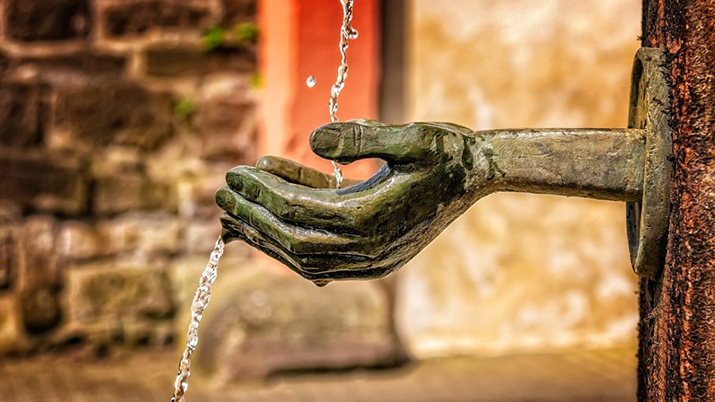HAPPENING AT THE UN
WORLD WATER DAY
Sometimes, you need to go right down to the bottom of things. Look at what is underneath, and seek out hidden treasures. For example, World Water Day this year requires an effort from visionaries, to imagine invisible, underground deposits, and especially the impact they may have on the life of the planet, life on the surface, which we see every day before our eyes. It is not easy but it is necessary, because almost all the freshwater in the world is located underground. And not only this, but the consequences of climate change make finding it more and more complex and conserving it more critical.
"All human beings must have access to a safe source of fresh water": this is what human rights charters, the aims of the United Nations and also common sense tell us. But this is not how it is, and we are not even close to it. A few figures to clarify the situation: 2.2 billion people do not have access to drinking water, 26 per cent of the world's population do not have basic sanitation available to them, 10 per cent consume food irrigated by waste water and over 430,000 people die each year from diarrhoea caused by deficiencies of this type.
26 per cent of the Earth’s population do not have basic sanitation
Are we doing enough to avoid all this? Maybe not, but since 22nd March 1993, the States that make up the United Nations General Assembly have been invited to promote water by means of "concrete activities". Since 2005, also various NGOs have been using this anniversary as a time to raise public awareness on the subject, with special consideration given to the sustainability of natural water habitats. In addition, since 1997, the World Water Council, an international non-governmental organisation created in 1996 as a platform for specialists in the sector, has convened a World Water Forum every three years to debate local and regional problems. These are questions that cannot be resolved without a framework agreement between States with common aims and strategies. The next one, the ninth, is planned for 21st to 26th March in Dakar.
But there are not only the global questions, big ones but far removed from us. There are also everyday patterns of behaviour - small, but close to home. And given that the big players have difficulty in changing their habits, many programmes focus on children's education. Numerous schools give practical advice that may make a difference. Simple things, such as taking a shower rather than a bath, washing one's hands by soaping them while dry and rinsing them only after rubbing, ensuring that taps are properly turned off, filling a few bottles and putting them in the fridge rather than letting the water run and waiting until it gets cold. The hope is that children learn and especially that they have the patience to teach these things to adults.







